Reviews for August 28th, 2009
Big Fan
Directed by Robert Siegel.
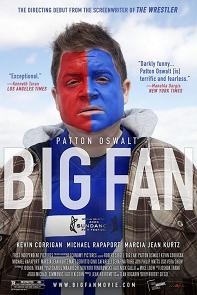
Paul Aufiero (Patton Oswalt), a 35-year-old single man, lives with his mother (Marcia Jean Kurtz) in Staten Island and works a dull job as an attendant at a parking garage. Essentially, he leads an aimless life where his only passion is the New York Giants and calling into a radio station late at night to show his support his favorite team. His only friend, Sal (Kevin Corrigan), watches the games with him together from a parking lot. When he and Sal happen to spot Quantrell Bishop (Jonathan Hamm), a New York Giants linebacker, at a gas station, he decides to follow his car all the way into Manhattan, where Quantrell enters a strip club. Not surprisingly, Paul and Sal follow him into the club and desperately try to communicate with him, but when Quantrell learns that they stalked him all the way from Staten Island, he physically assaults Paul to the extent that he needs to be hospitalized. It’s at that point that Paul’s life goes into a new direction. His more successful brother, brother, Jeff (Gino Cafarelli), who happens to be a lawyer, insists on pressing charges against Quantrell and suing him for $77 million. Meanwhile, a detective (Matt Servitto) won’t get off his back about the details of the night of the assault. Will Paul follow through with pressing charges? What might happen if the detective learns that Paul and Sal stalked Quantrell? The real question, though, is what it would take for Paul to finally grow up and realize that his life isn’t really going anywhere purposeful. Although, he’s 35-years-old, you’d think he were still a teenager given his behavior and stupidity. Patton Oswalt’s decent, lively performance as Paul keeps you mildly engaged at least. It’s alright that writer/director Robert Siegel makes Paul seem so unappealing, charmless, juvenile and bird-brained, but it would have been interesting had he further explored the roots of Paul’s immaturity and allowed for his transformations or realizations, regardless of how small, to be more organic. Moreover, the screenplay could have used a heavier dose of clever humor because most of the comedic attempts fall flat. Too many scenes feel awkward and dull, as especially as the plot progresses into the inane third act that leaves you with a bad aftertaste. At a running time of 86 minutes, Big Fan suffers from a lazy, bland screenplay deficient in sharpness, insight and imagination which can’t be saved by Patton Oswalt’s oddly engaging performance. Number of times I checked my watch: 4 Released by First Independent Films. Opens at the Angelika Film Center. 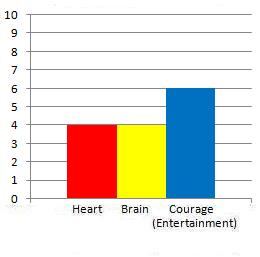
Play the Game
Directed by Marc Fienberg.
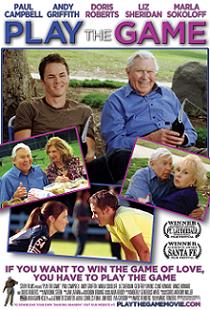
David (Paul Campbell), a young man who works as a car salesman, visits his 84-year-old grandfather, Joe (Andy Griffith), at a retirement home, and persuades him to listen to his advice about how to get back into the dating scene. Joe develops a relationship with Edna (Liz Sheridan), a senior from the retirement home, and tries to win over another lady, Rose (Doris Roberts), who already has a boyfriend. Rose happens to be the mother of Julie (Marla Sokoloff), the girl of his dreams whom he’s trying to win over, but she’s playing hard-to-get and claims to have a boyfriend. Julie and David quickly become good friends, although David wants to be more than just friends. In a subplot, he must also deal with his very cold and selfish father, Dick (Clint Howard), whom he’s working for at the car dealership. Writer/director Marc Fienberg, in his feature film directorial debut, deftly blends the genres of comedy, romance and drama without any dull moments to found. Each character, with the exception of Dick, seems equally likable and endearing. It’s a real pleasure to watch Andy Griffith having such a great time sinking his teeth into a meaty role with so much ease. He brings a lot of charm, warmth and tenderness to the role of Joe as does the radiant and genuinely beautiful Marla Sokoloff as Julie. You’ll find a lot of witty dialogue and sex-related humor here as well as physical comedy that will leave you in stitches thanks to the cast’s terrific comedic timing, such as when Edna seduces Joe in a outrageously funny scene. There are also a few heartfelt moments, especially as Joe struggles to overcome emotional pain from re-entering the dating scene. Feinberg wisely moves the film along at a brisk pace and, ultimately, finds just the right balance between entertaining the audience and provoking them intellectually as well as emotionally. At a running time of 1 hour and 45 minutes, Play the Game manages to be heartwarming, clever and very, very funny. It’s a genuinely charming, uplifting and crowd-pleasing gem that must be seen by generations, young and old. Number of times I checked my watch: 0 Released by Slowhand Releasing. Opens at AMC Loews 72nd St. and City Cinemas Village East. 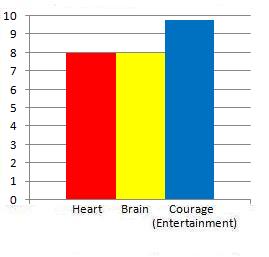
The September Issue
Directed by R.J. Cutler.
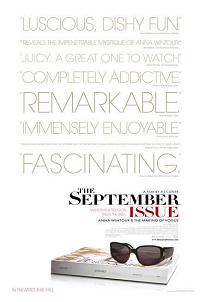
This slick and stylish documentary follows Anna Wintour, editor-in-chief of Vogue magazine, and her creative director, Grace Coddington, as they work diligently to complete the September 2007 issue, the longest issue in the history of Vogue at 840 pages. Wintour always dresses to impress and clearly has the smarts to understand the world of fashion. She’s the kind of person who says what she means and means what she says without losing her confidence, at least as far as the camera can tell. Her perspectives and tastes in fashion mean so much that department stores such as Neiman Marcus enlist her to serve as a fashion consultant. Anyone interest in fashion will appreciate the behind-the-scenes look at how Wintour and her crew hurry to produce that crucial September issue under a lot of pressure and last-minute changes and re-shoots. Model/actress Sienna Miller, for example, had to come back to get photographed all over again after another photo shoot doesn’t go particularly well. Director R.J. Cutler includes a lot of “show” stand not very much “tell.” Wintour remains cold, enigmatic and distant throughout. Perhaps he should have had the courage to ask her more delicate, sharper and intriguing questions that would illuminate her in a way that couldn’t be achieved by merely reading about her on the internet. What makes her so unfriendly? Why does she behave like she’s above everyone around her? Has she always been like that? She’s quite intimidating, especially to new young designers such as Thakoon Panichgul, who confesses that his hands were trembling when he spoke to her. More background information about Wintour might have helped to answer those questions at least somewhat; it’s not enough to show Wintour interacting with her daughter, who’s not interested in following her mother’s footsteps in the fashion industry. Fortunately, the one person who does express herself openly and candidly is creative director Grace Coddington, who admits that Wintour throws away too many good photos and clothes and is stubborn, but they’ve both learned how to get along with one another and to be productive as a team. Coddington knows how to express her disagreements to Wintour without causing a scene. It’s evident on an almost visceral level that they’re both very passionate about their work. Their passion, along with their unique talent, fuels their perseverance in the cutthroat world of fashion. At a running time of 90 minutes, The September Issue manages to be a captivating, lively and slick documentary that’s heavy on style, but low on substance. Number of times I checked my watch: 1 Released by Roadside Attractions. Opens at Clearview Chelsea, City Cinemas 1, 2 & 3, Landmark Sunshine Cinema, AMC Loews Lincoln Square and AMC Empire 25. 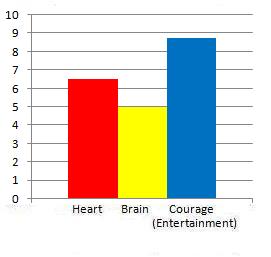
Still Walking
Directed by Hirokazu Kore-eda.
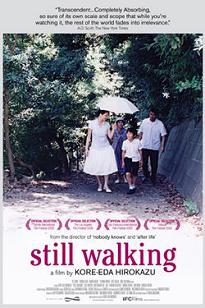
In Japanese with subtitles. Ryota Yokohama (Hiroshi Abe), a 4o-year-old restorer of art, arrives at the home of his elderly mother, Toshiko (Kirin Kiki), and father Kyohei (Yoshi Harada), with his widowed wife, Yukari (Yui Natsukawa) and her son, Atsushi (Sohei Tanaka), from her previous marriage. Ryota’s sister, Chinami (You), and her husband (Kazuya Takahashi) also show up along with their two little kids. They all gather together to remember Jenpei, Ryota’s older brother who died fifteen years earlier. Kyohei doesn’t quite approve of Ryota’s profession as an art restorer; he wishes that he would have followed his footsteps as a doctor after his retirement. Throughout the course of all the bickering between Ryota and his parents, it becomes clearer that he doesn’t live up to the more successful son of the family, Jenpei. Yukari also struggles to deal the alienation and emotional distance between her and her in-laws. Writer/director Hirokazu Kore-eda, who previously wrote and directed Nobody Knows and After Life, has woven a drama filled with closely-observed dramatic, bittersweet and tender moments along with some much-needed comic relief to lighten the burden of the heavier and sadder elements of the film. Kore-ada wisely moves the film along at a leisurely pace and gradually shows you the dynamics and issues of the Yokohama family. Even though Kyohei often seems bitter, resentful and cold, that doesn’t make him an unlikable character. He’s just as real and complex as every other member of the family onscreen. The beautiful, crisp and smooth cinematography along with the organic screenplay helps to enhance the realism and to keep you thoroughly absorbed. Although there are many characters who go through all sorts of conflicts and epiphanies, there’s never a moment that feels too convoluted. It’s also worth mentioning the clever use of symbolism, such as a butterfly and views of the ocean, which add another layer of richness and poignancy. At running time of 1 hour and 54 minutes, Still Walking manages to be a captivating, heartfelt and character-driven tapestry brimming with well-nuanced performances, exquisite cinematography and just the right balance of delicate humor. Number of times I checked my watch: 1 Released by IFC Films. Opens at the Angelika Film Center and Lincoln Plaza Cinemas. 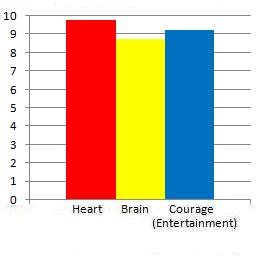
Main Page
Alphabetical Menu
Chronological Menu
______________________________________________________
|








